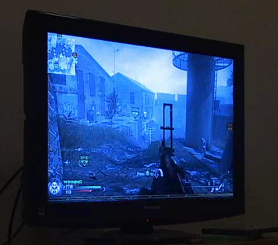A new study has found that video games might not be all that bad.
According to game designer Jane McGonigal, playing video games evokes positive emotions and creates social relationships. With 183 million people in the U.S. playing online games at least an hour a day, there is a lot of good to go around.
Senior Jimmy Feeks said he has firsthand experience with strengthening social relationships through online gaming.
“You can play with your friends that go to a different college, and it’s a good way to keep your friendship strong,” he said. “It’s also a good way to build teamwork.”
McGonigal said video games do a better job of evoking emotions such as curiosity, optimism and the desire to work with others to achieve a goal. She said the games also provide an opportunity for friends and families to bond in a different way than other kinds of social interaction.
But some people are skeptical of the games’ benefits.
“Certainly there is some evidence that, depending on the outcome, you measure that video games can be good,” psychology professor John Tauer said. “But there’s also an abundance of research studies that show video games can be dangerous, both when played to excess and the lessons and messages that they send.”
But McGonigal said just one hour a day of a video game is enough to provide benefits. Anything more than 21 hours per week puts a person at risk for depression and social anxiety.
Tauer echoed the same belief.
“We know that lots of people are spending multiple hours every single day [playing video games],” he said. “If they are trying to meet those basic psychological needs through video games and not through real human interaction, I don’t know that that bodes well for society.”
McGonigal’s research also shows that when people play multiplayer games, they become more likely to help others and trust each other after the game, no matter if they win or lose.
“I would certainly say it’s a lot more fun to play in a group,” Feeks said. “Whether you’re winning or losing, it doesn’t really matter.
He added, “It’s just a lot more fun to play with people than it is without others.”
But group games aren’t the only ones with added benefits. Playing just 90 seconds of a game as a powerful avatar, such as in World of Warcraft, was found to boost students’ confidence levels for up to 24 hours, making them more successful test-takers.
For Feeks, video games are a stress reliever.
“Certainly we all need to spend time having leisure activities and winding down from our stressful college lives,” Feeks said.
But Tauer said video games might not be the solution.
“While video games may not be the cause of all evil, there are certainly other things that I think kids should be spending their time doing with their lives,” he said.
Colleen Schreier can be reached schr1207@stthomas.edu.


Jimmy Feeks has an antisymmetric two particle system.